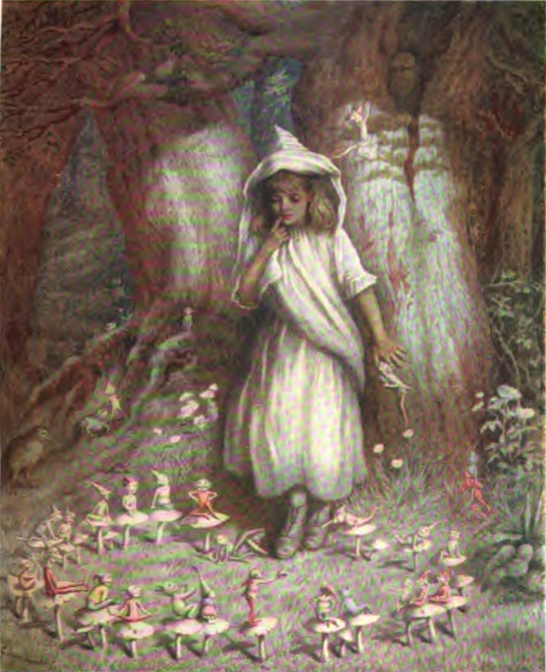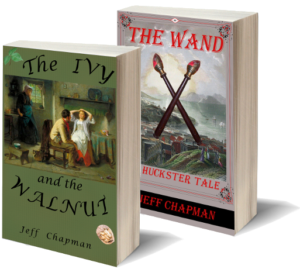
The Elf Ring, by Kate Greenaway.
No, this is not Santa’s worst nightmare. Elflocked to his chair by the fire on Christmas eve. Elves do have an unfortunate sense of humor. Nor is it some clever password. ELF-locked as in SHER-locked. It’s worse, much worse. Elflock (or fairy locks) is an old word for a bad hair day.
Upon waking in the morning and finding their hair tangled and matted, people used to say they had elflocks, blaming mischievous elves for the sad state of their hair and the pain of combing out the tangles. Elves like to tangle and knot hair. They don’t have real jobs. The word comes from combining elf–those supernatural beings from Germanic folklore–with lock, a tress of hair.
The first written usages of the word date from the late sixteenth century. Shakespeare uses elflock in two of his plays.
In Act 1, Scene 4 of Romeo and Juliet, Mercutio makes a speech about a fairy named Queen Mab and blames her for the tangled state of horses’s manes.
This is that very Mab
That plaits the manes of horses in the night
And bakes the elflocks in foul sluttish hairs,
Which once untangled, much misfortune bodes.
In Act 2, Scene 3 of King Lear. Edgar describes making himself look like a madman, employing elf as a verb.
My face I’ll grime with filth,
Blanket my loins, elf all my hair in knots,
Next time you wake up in the morning with a mess of tangles, you’ll know who is to blame.
Attribution: Kate Greenaway [Public domain], via Wikimedia Commons.


Yep, that described my hair – elflocked. 🙂